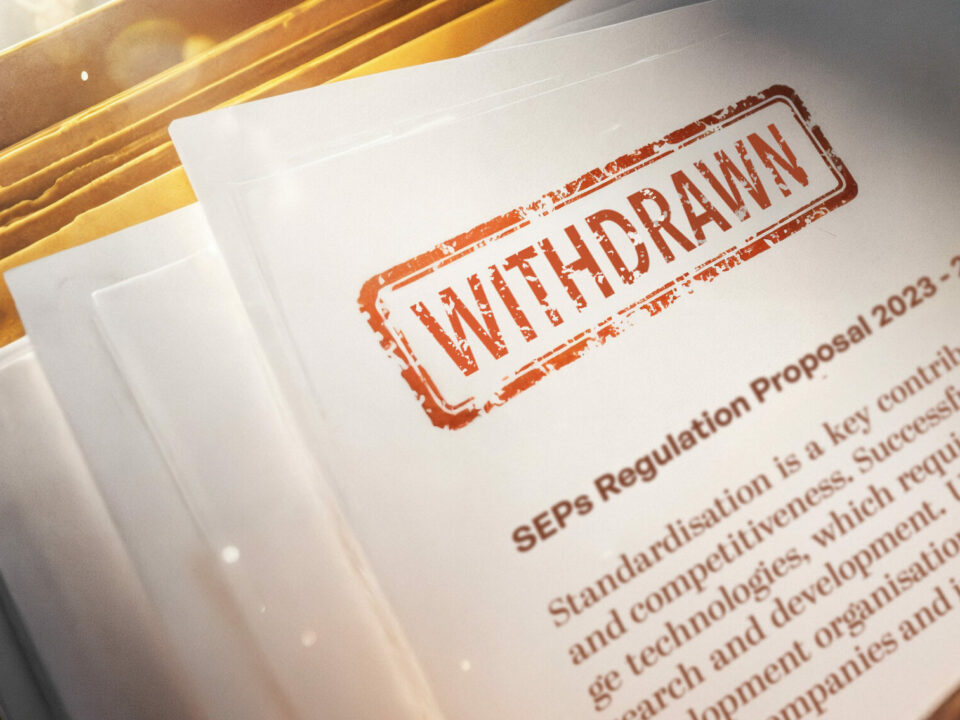IP Europe Supports the European Commission’s Search for Efficiency and Balance in Standard Essential Patents but Misses Proposals to Minimise “Hold-Out” Tactics
BRUSSELS – Responding to the European Commission’s call for evidence for an impact assessment for a new framework for standard essential patents (SEPs), IP Europe welcomes the EU executive’s high-level goals but believes it risks missing an opportunity to address some players’ insidious “hold-out” tactics and could even make a bad situation worse.
IP Europe is a coalition of research- and development-intensive organisations whose inventions are protected by patents, including SEPs, and companies that license patent portfolios to others. Its members include both licensors and implementers of SEPs, giving it a deep experience in SEP licensing negotiations from both sides of the table.
“We welcome the Commission’s recognition that intangible assets are the cornerstones of today’s economy,” said Ruben Bonet, SME chair of IP Europe. “We support initiatives that support innovation and continued investment in R&D and increase legal certainty.”
IP Europe believes an effective framework for SEP licensing should at its core strike a balance between protection of IP, which promotes innovation by some companies, even as it allows other companies to access those innovations and thereby to enhance functioning of the single market.
Unfortunately, the Commission’s initiative does not fully address the significant problem caused by foot-dragging tactics known as “hold-out” in which some companies making use of standardised technologies refuse to pay until they are ordered to do so by a court, sometimes years later.
IP Europe members are committed to achieving efficient licensing on fair, reasonable and non-discriminatory (FRAND) terms. FRAND-based open standards development supports market entry for all players, encourages innovation, and benefits consumers and society globally. Effective protection of SEPs is critical to inventors’ continued participation in open standards development and the future of R&D spending on wireless technology.
Changes to the SEP licensing framework that do not address or would further exacerbate the hold-out phenomenon would have a profound negative impact and would undermine the Commission’s stated objective of bringing balance to the system. This could unintentionally jeopardise Europe’s leadership in connectivity technology and not only undermine the Commission’s own ambitions on climate change and the green economy but also threaten the EU’s technological sovereignty.
About IP Europe
IP Europe is a coalition of research- and development-intensive organisations whose inventions are protected by patents, including SEPs, and companies that license patent portfolios to others. Its members include both licensors and implementers of SEPs. IP Europe’s goal is to promote the vital importance of SEPs to the European digital- and knowledge-based economy and to ensure that EU policies support a world-leading innovation ecosystem. Its members collectively invest billions of euros a year in R&D critical for developing cutting-edge technologies. Its members also contribute to open, collaborative, and consensus-driven standards development that makes these technologies available for integration into an ever-increasing array of connected products and services.
For further information please contact:
secretariat@ipeurope.org or +32-2-626-9500



